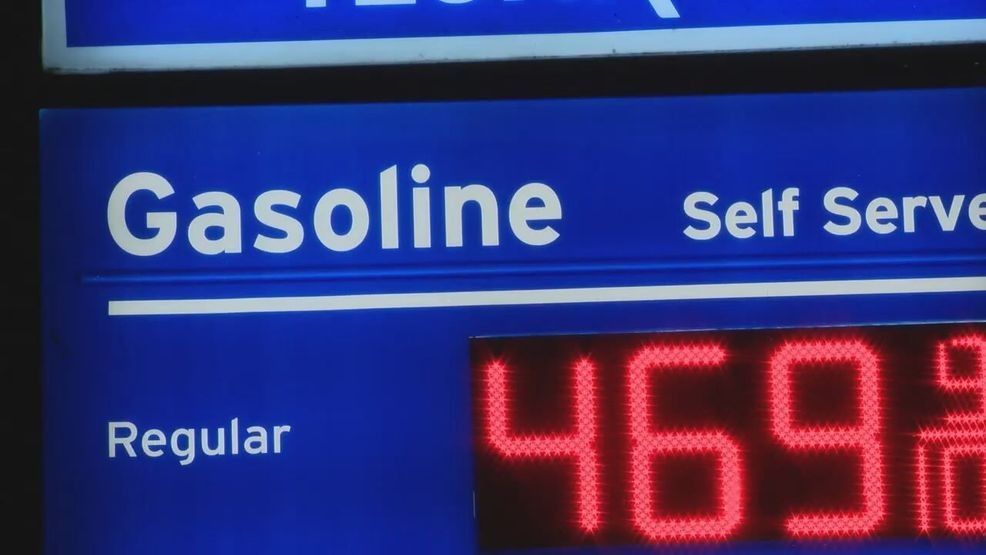SEATTLE, Wash. — Washington state currently holds the highest gas prices in the nation, with the average cost for a gallon of regular gasoline at $4.66, according to AAA.
This figure far surpasses the national average of $3.18.
RELATED | Seattle gas prices continue to rise, price per gallon over $1 more than national average
Washington has even overtaken California, notoriously #1 when it comes to high gas prices. As of September 14, California’s average cost stands at $4.64 per gallon.
The Seattle metropolitan area reports the most expensive gas prices within Washington, with an average of $4.81 per gallon.
Washington drivers have always paid significantly more due to the state’s high gas taxes and costs passed on from climate initiatives, and recent taxes and localized increases have continued to spike prices.
Starting Jul. 1, Washington’s new gas tax added another 6 cents per gallon of unleaded to fund road projects and bridge maintenance, hiking the state’s per-gallon tax rate from 49.4 cents to 55.4 cents.
Per-gallon prices for unleaded will also rise 2% every year to adjust for inflation, and diesel will increase by 3 cents more in two years, then in 2028, it will increase 2% a gallon each year.
Opinions among Seattle drivers are divided on whether the added cost is justified, with interviewees telling KOMO News that they’re not seeing city or road infrastructure improvements that validate the price increase.
“Seattle doesn’t pay [any] money on the infrastructure here. You go down I-5, it bumps everything. So, I don’t think we spend enough money on that,” Seattle local Timothy Durden said.
“We’re basically California now with our gas prices,” added Quinn Sullivan, another Seattle resident.
Some drivers are searching extensively for the best deals on gas. Near the airport in the days leading up to July, prices were significantly higher, with people paying nearly $5 a gallon at a 76 station – and this was before the gas tax went into effect.
These price spikes are leading to frustration among drivers concerned about the impact on their holiday travel plans.
In addition to the gas tax, the state’s CO2 emissions tax from the Climate Commitment Act just went up another 6 cents as well.
Those who don’t agree with the law, which requires businesses to pay fees for their air pollution, blame it for increasing gas prices.
The State Department of Ecology emphasized that regulations like the Climate Commitment Act are not the primary factor in gas prices. A spokesperson explained that the recent increase of just over three cents per gallon mirrored the national trend.
Revenue from the CO2 emissions tax is allocated to various programs aimed at reducing carbon emissions, expanding public transit in rural areas, and supporting people with disabilities. Since its inception two and a half years ago, the program has raised approximately $3.2 billion.

